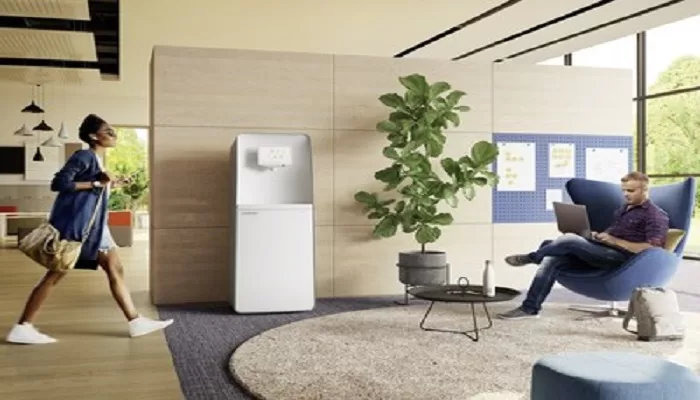Food & Beverage
Pepsico Introduces New Packaging Goal, Doubling Down on Scaling Reusable Packaging Options

PepsiCo (NASDAQ: PEP) announced a global packaging goal intended to double the percentage of all beverage servings it sells delivered through reusable models from 10 to 20 percent by 2030. This ambition is part of PepsiCo Positive (pep+), the company’s strategic, end-to-end business transformation that puts sustainability and people at the center of how the company will create growth and value.
Offering its iconic beverages in reusable packaging and on innovative platforms that eliminate the need for single-use virgin plastic is not new to PepsiCo – it has been an important element of the company’s Sustainable Packaging Vision since 2018, when PepsiCo invested over $3.2B to acquire SodaStream, the world’s leading reuse platform, and expressed its commitment to a circular economy for plastics by joining the New Plastics Economy Global Commitment. Reuse is also a critical lever to meet PepsiCo’s goals to reduce virgin plastic per serving by 50% by 2030 and to become Net Zero by 2040, and progress toward these goals will also be driven – in partnership with our bottlers – by increasing recycled content in our packaging.
Aligned with the Ellen MacArthur Foundation’s “Reuse – Rethinking Packaging” framework, PepsiCo will pursue four approaches to achieve its new packaging goal, including expanding its SodaStream business, both at home and in workplaces through SodaStream Professional; building out its refillable plastic (PET) and glass bottle offerings in partnership with PepsiCo bottlers; growing its fountain drinks business with reusable cups; and accelerating growth in powders and concentrates.
PepsiCo has more than 80 markets around the world offering reusable packaging solutions, including:
- The widespread international availability of SodaStream and SodaStream Professional, and its continued growth, enables consumers to reinvent how they consume some of the world’s most loved beverage brands and personalize their choices in reusable containers, potentially eliminating the need for more than 200 billion plastic bottles by 2030.
- Refillable and returnable glass and plastic programs in major markets including Mexico, Guatemala, Colombia, Chile, Germany and the Philippines.
- Many of our brands, including Gatorade, Propel, Muscle Milk and Evolve, are offered as concentrated powders or tablets to allow consumers to customize the drink to their preferences in their own containers.
“Fundamentally transforming the traditional beverage consumption model will require making reusable and refillable options accessible and convenient, at scale, for consumers – and that’s what PepsiCo aims to do,” said Jim Andrew, Chief Sustainability Officer, PepsiCo. “PepsiCo will accelerate our investment in disruptive innovation and advocate for policies that allow us to scale up reusable packaging options, platforms and programs so that we can offer consumers a wide variety of alternative ways to enjoy their favorite beverages while moving away from reliance on single-use packaging.”
“We know we cannot recycle our way out of this plastic pollution crisis,” said Sander Defruyt, the Ellen MacArthur Foundation’s Plastic Initiative Lead. “By avoiding single-use packaging waste in the first place, reuse business models are an important part of creating a circular economy. Our latest Global Commitment report illustrated the lack of progress on reuse across the industry, and highlighted a lack of ambition when it comes to reuse strategies. We welcome this significant step forward by PepsiCo and we hope other global brands will follow suit and similarly set quantitative reuse targets helping to reduce their use of virgin plastics in packaging.”
PepsiCo will continue working with multiple partners to develop new infrastructure to support reuse and refill models. Most recently, PepsiCo joined the Closed Loop Partners NextGen Consortium. Through the consortium, it is working collaboratively with stakeholders across the value chain to design and test new models to enable the scale up of reusable cups, a critical component of supporting a reuse infrastructure alongside beverage fountains.
Source: PepsiCo

















































